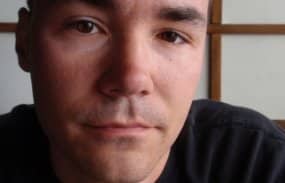Study Poker Like Don Quixote

I will tell you a way to get the most out of your studying, but first let’s talk about what it means to study. Learning is a process, not a goal. It’s not something you accomplish, it’s something you do. It’s a road that has no end. It’s a habit you develop, and once you have that habit, you keep it.
We all want a magic bullet. Clients come to me and ask me to just fix their games. If you ask a poker player “When do I 3-bet?” and she says anything other than “It depends” or “Give me more information,” the advice is probably wrong. Even if it was correct for that situation, if you did not learn why, you did not learn anything. If you ask a mental coach “How do I fix my game (or how do I study)?” and he gives you an answer without you really understanding the why, then he has done you a great disservice. Without knowing how you learn, you can’t possibly know how to study, and no one knows how you learn but you.
Applied Positive Psychology is a field of psychology that does not focus on treating mental illness but rather looks at mentally healthy people and tries to make their lives even better. Psychologists have learned that people have certain signature strengths they utilize to compensate for their weaknesses. If you want to get ahead in poker or life, you don’t always have to plug your leaks;instead, you can make your strengths even stronger.
Daniel Negreanu is innately talented at reading people. He has optimized this strength to become the soul-reader we all know. Tom Dwan can do complex math in his head and he’s honed this skill to maximize edges to a fraction of a percent. Patrik Antonius, who has never read a book about poker, learns best in the heat of the game, adapting as he goes. Depending on your own strengths and playing style, reading poker books, analyzing thousands of hands, or watching footage of tells may very well be a waste of your time. If you are a mere mortal like me, you’ll still need to study somehow.
Now you are probably asking yourself: “Ok, but how do I do that?” You probably already know how best to study poker but don’t realize it. Think of something you do particularly well, that comes very easily to you. Maybe it is playing strategy games like Risk or remembering every movie every actor has ever been in or maybe it is something else. Whatever it is, it is something you do well and, importantly, love to do. It is something you can do and talk about for hours on end before exhaustion.
When you figure that out, try to relate that to poker both on and off the table. If you are great at remembering faces and facts about actors, pattern recognition may come easily to you and learning by playing may work well for you. If you are good at strategy games but you seem to botch poker plays in the heat of the moment, you may learn best by analyzing situations away from the table to avoid making the same mistake twice. In short, stop trying to play like someone else, and start trying to play like you.
Don Quixote wanted to be a chivalrous knight but also wanted to be his own knight. Where would Tom Dwan be if he wore a Stetson hat and tried to be Doyle Brunson? Where would Phil Hellmuth be if he gave up White Magic, shaved his head, and tried to be Patrik Antonius? Take some time and do some self-analysis. Focus on how you process information not how your favorite pro does. Try relating your strengths, no matter how weird, to poker,even if people think you are crazy. Be a madman. Be Don Quixote.
John Wood is the on-staff mental coach at Alexander “Assassinato” Fitzgerald’s Pokerheadrush.com. For a discount on his mental coaching services please visit this link.
 Don Quixote was a middle-aged madman who believed the world was not chivalrous enough. So, he took a broken nag that he deemed his mighty steed and proclaimed himself a knight and ventured off into the world on a quest for adventure. To be a poker player, you have to be a little bit mad. You have to eschew the conventional and choose the riskier (and more exciting) path.
Don Quixote was a middle-aged madman who believed the world was not chivalrous enough. So, he took a broken nag that he deemed his mighty steed and proclaimed himself a knight and ventured off into the world on a quest for adventure. To be a poker player, you have to be a little bit mad. You have to eschew the conventional and choose the riskier (and more exciting) path.